Atlas Unlimited: Entr’acte
Karthik Pandian and Andros Zins-Browne with Dr. Tasha K. Vorderstrasse and Sami Ismat
Mar 01, 2019
(7pm)
Performance
Please RSVP
At the midpoint of their unfolding series of exhibitions, Atlas Unlimited (supported by a 2018 Graham Foundation Grant to Individuals), artist Karthik Pandian and choreographer Andros Zins-Browne present “Entr’acte,” a lecture in the presence of an object. The lecture, delivered by archaeologist Dr. Tasha K. Vorderstrasse (Oriental Institute, Chicago) concerns a fragment of a sculpture found in the ancient Syrian city of Palmyra. Installed in the Madlener House for one night only, the object will rest on a base that the artists have produced in collaboration with Chicago-based furniture designer Casey Lurie. “Entr’acte” is presented concurrently with Pandian and Zins-Browne’s solo exhibition, Atlas Unlimited (Acts V-VI), at the Logan Center for the Arts at the University of Chicago, which runs from February 1–March 17, 2019. “Entr’acte” is produced in collaboration with emerging Syrian theater-maker, Sami Ismat.
American artist Karthik Pandian has held solo exhibitions at the Whitney Museum of American Art; Bétonsalon, Paris; Midway Contemporary Art, Minneapolis; and White Flag Projects, St. Louis, amongst others. His work was featured in the inaugural Made in L.A. at the Hammer Museum and La Triennale: Intense Proximity at the Palais de Tokyo as well as in group exhibitions such as Adventures of the Black Square: Abstract Art and Society 1915–-–2015 at Whitechapel Gallery; Film as Sculpture at Wiels Contemporary Art Centre, Brussels; and the 4th Marrakech Biennial, Higher Atlas. Pandian holds an MFA from Art Center College of Design and a BA from Brown University. He lives and works in Cambridge, Massachusetts where he teaches video, sculpture, and performance at Harvard University.
Andros Zins-Browne is an American choreographer who lives in Brussels and New York City. After receiving a degree in Art Semiotics from Brown University, he went on to study dance at PARTS in Brussels and in the fine arts department of the Jan van Eyck Academy in Maastricht. Zins-Browne's performances cross between stage and exhibition spaces including: Centre Pompidou Paris; ICA London; HAU Berlin; Stedelijk Museum Amsterdam; DeSingel Antwerp; EMPAC, Troy, NY; Kaaitheater Brussels; and the Impulse Festival, Düsseldorf where he received the Goethe Institute Award for The Host. His solo Already Unmade, a commission by The Boghossian Foundation, has recently been performed at the BOZAR Museum, Brussels; The Whitney Museum of American Art, in New York City; the Rockbund Art Museum, Shanghai; and Lafayette Anticipations, Paris.
Sami Ismat is a theatre and performance maker from Damascus, Syria currently living in Chicago as a refugee.
Casey Lurie is an independent designer based in Chicago.
Tasha Vorderstrasse is a Near Eastern archaeologist who focuses on questions of cultural identity and exchange.
Special thanks to builder Anthony Adcock
Related Graham Foundation supported projects:
2018 exhibition grant to Karthik Pandian & Andros Zins-Browne for Atlas Unlimited (Acts V—VI) at the Logan Center for the Arts at the University of Chicago, February 1–March 17, 2019
Image: Karthik Pandian and Andros Zins-Browne with De Looizemaanen, Atlas Unlimited Act I: Carnaval, Netwerk Aalst. Photo: Karthik Pandian

The Funambulist Four Years Later: Our Successes and Failures Are Also Political!
Léopold Lambert
Feb 22, 2019
(12pm)
Talk
Please RSVP
The Funambulist is a magazine that believes that the politics of its production and management should be held to the same standards as the politics of its contents. In this regard, and although self-critique is always challenging, this presentation examines how the magazine meets and fails this mission. Graham grantee Léopold Lambert reflects on the work to date and presents future directions for the publication.
Léopold Lambert is a Paris-based, trained architect who collaborated with Madeline Gins in 2013–14. He is the editor-in-chief of the print and online magazine The Funambulist, dedicated to the politics of space and bodies. He is the author of Weaponized Architecture: The Impossibility of Innocence (DPR-Barcelona, 2012); Topie Impitoyable: The Corporeal Politics of the Cloth, the Wall, and the Street (Punctum Books, 2015); La politique du bulldozer: La ruine palestinienne comme projet israélien (Éditions B2, 2016); and States of Emergency: A Spatial History of the French Colonial Continuum (forthcoming, 2019). He has been the recipient of four Graham Foundation grants between 2014 and 2017.
Related Graham Foundation supported projects:
2017 Publication grant to Léopold Lambert for The Funambulist
2016 Publication grant to Léopold Lambert for The Funambulist
2015 New Media grant to Léopold Lambert for The Funambulist Podcast
2014 New Media grant to Léopold Lambert for The Funambulist Podcast
Image caption: The 20 first issues of The Funambulist since September 2015

Political Reading of Arakawa+Gins
Léopold Lambert
Feb 21, 2019
(6pm)
Please RSVP
The work of Arakawa and Madeline Gins is usually approached through art theory, philosophy, or even sciences; yet, rarely is it examined through the underlying, yet powerful, political dimension of their groundbreaking work. This presentation will first attempt to demonstrate how all designs are calibrated on a certain idea of what a body is, almost always reinforcing societal normativity and its violence in doing so. It will then illustrate the ways through which Arakawa and Gins designed architectural projects that fundamentally subvert such normativity and, as such, can be read as one of the rare examples of revolutionary political architecture.
Léopold Lambert is a Paris-based, trained architect who collaborated with Madeline Gins in 2013–14. He is the editor-in-chief of the print and online magazine The Funambulist, dedicated to the politics of space and bodies. He is the author of Weaponized Architecture: The Impossibility of Innocence (DPR-Barcelona, 2012); Topie Impitoyable: The Corporeal Politics of the Cloth, the Wall, and the Street (Punctum Books, 2015); La politique du bulldozer: La ruine palestinienne comme projet israélien (Éditions B2, 2016); and States of Emergency: A Spatial History of the French Colonial Continuum (forthcoming, 2019). He has been the recipient of four Graham Foundation grants between 2014 and 2017.
Related Graham Foundation supported projects:
2017 publication grant to Léopold Lambert for The Funambulist
2016 publication grant to Léopold Lambert for The Funambulist
2015 new media grant to Léopold Lambert for The Funambulist Podcast
2014 new media grant to Léopold Lambert for The Funambulist Podcast
Image caption: Léopold Lambert, Human Engineering vs. Arakawa+Gins, collage, 2019
For more information on the exhibition, Eternal Gradient , click here.

Arakawa and Madeline Gins: Eternal Gradient Opening Reception
Irene Sunwoo, Stephen Hepworth, and Norman Kelley
Feb 07, 2019
(5:30pm)
Opening Reception
Please RSVP
5:30 p.m. Comments by curator Irene Sunwoo; Stephen Hepworth, director of collections at the Reversible Destiny Foundation; and exhibition designers Carrie Norman and Thomas Kelley
6:00–8:00 p.m. Opening reception
Please join us for a reception and introductory remarks by exhibition curator Irene Sunwoo; Stephen Hepworth, director of collections at the Reversible Destiny Foundation; and exhibition designers Carrie Norman and Thomas Kelley to celebrate the opening of our winter exhibition.
Eternal Gradient traces the emergence of architecture as a wellspring of creativity and theoretical exploration for the artist Arakawa (1936–2010) and poet and philosopher Madeline Gins (1941–2014). Including over 40 drawings and a wide-range of archival materials, this presentation illuminates a pivotal moment within a collaborative practice that spanned nearly five-decades.
Eternal Gradient originated at the Arthur Ross Architecture Gallery at Columbia University Graduate School of Architecture, Planning and Preservation (GSAPP) and is made possible, in part, by the Estate of Madeline Gins and through a partnership with the Reversible Destiny Foundation.
The exhibition was curated by Irene Sunwoo, GSAPP director of exhibitions and curator of the Arthur Ross Architecture Gallery, with Tiffany Lambert, GSAPP assistant director of exhibitions. The Graham Foundation presentation is organized by Sarah Herda, director, and Ellen Alderman, deputy director of exhibitions and public programs. The exhibition design is by Norman Kelley, a Chicago & New Orleans architecture and design collective founded by Carrie Norman and Thomas Kelley.
Image: Arakawa and Madeline Gins, Drawing for ‘Container of Perceiving,’ 1984. Acrylic, watercolor and graphite on paper. 42 1/2 x 72 3/4 in. Photo: Nicholas Knight. Courtesy Columbia GSAPP. © 2018 Estate of Madeline Gins. Reproduced with permission of the Estate of Madeline Gins
For more information on the exhibition, Eternal Gradient , click here.

Arata Isozaki, DEME robot, 1970
An Anatomy of Influence
Thomas Daniell
Jan 24, 2019
(6pm)
Talk
Please RSVP
Containing a wealth of texts and images, Thomas Daniell’s Graham-funded book An Anatomy of Influence elucidates the theory and practice of 12 leading Japanese architects (Hiromi Fujii, Terunobu Fujimori, Hiroshi Hara, Itsuko Hasegawa, Osamu Ishiyama, Arata Isozaki, Toyo Ito, Kengo Kuma, Kazuyo Sejima, Kazuo Shinohara, Shin Takamatsu, and Kiyoshi Sey Takeyama). Rather than the usual array of exquisite yet autonomous buildings, this newly released publication focuses on the hitherto unexplored lives of their architects, and the intellectual, social, and political environment in which they worked. The result is not only a fascinating perspective on modern Japanese architecture, but a profound recasting of our understanding of the modern Japanese architect.
Thomas Daniell is a Professor of Architectural Theory and Criticism at Kyoto University, Japan. A two-time recipient of publication grants from the Graham Foundation, his latest book is An Anatomy of Influence (AA Publications, 2018). His previous books include FOBA: Buildings (Princeton Architectural Press, 2005), After the Crash: Architecture in Post-Bubble Japan (Princeton Architectural Press, 2008), Houses and Gardens of Kyoto (Tuttle, 2010), Kiyoshi Sey Takeyama + Amorphe (Equal Books, 2011), and Kansai 6 (Equal Books, 2011).
Related Graham Foundation supported projects:
2015 Publication grant to Thomas Daniell for An Anatomy of Influence
2008 Publication grant to Thomas Daniell for After the Crash: Architecture in Post-Bubble Japan

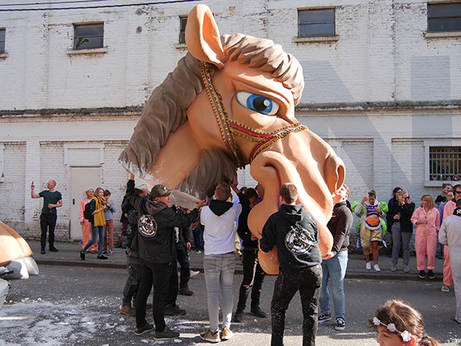
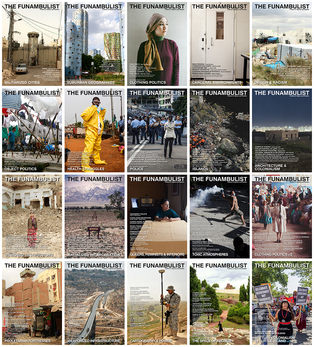
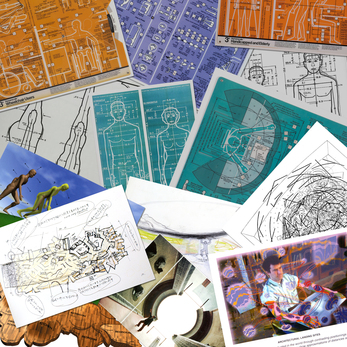
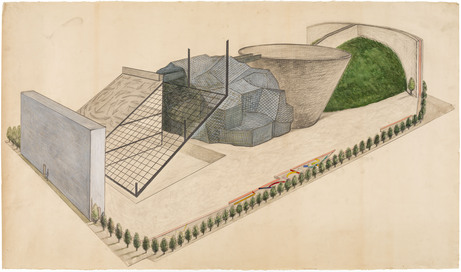
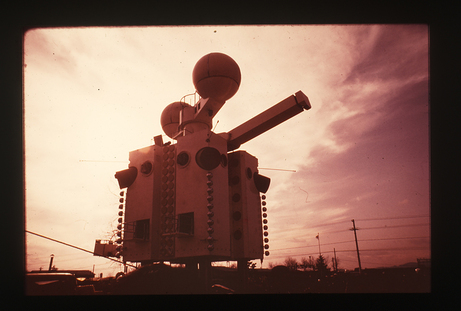
 PREVIOUS POSTS
PREVIOUS POSTS